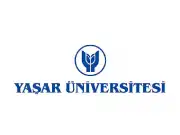Master’s programs in Transport and logistics
- Master in Transport and logistics
- Advantages of Master’s programs in Transport and logistics
- Disadvantages of Master’s programs in Transport and logistics
- Popular universities for obtaining a Master’s degree in Transport and logistics
- Admission requirements for Master’s programs in Transport and logistics
- Documents for admission to Master’s programs in Transport and logistics
- Cost of studying in Master’s programs in Transport and logistics
- Scholarships and grants for Master’s programs in Transport and logistics
- Career prospects after Master’s programs in Transport and logistics
- Is it worth studying Master’s programs in Transport and logistics abroad?
- Frequently Asked Questions

Master of Science - Logistics and Supply Chain Management
Lancaster University, Leipzig, GermanyThe focus of this program is to give students the cutting-edge education they need to succeed in the global logistics and supply chain management (SCM) industry.
The goal is to shape the next generation of logistics and supply chain managers so that they can effectively analyze and solve…

Master of Science - Supply Chain Management and Logistics
Arden UniversitySupply Chain Management and Logistics lecturers have years of experience. The teachers helped the European Commission and UK Government build supply chains commercially and policy-wise.
This course teaches strategic operations skills that are in demand across industries. This course covers…

Master - Corporate Logistics
University of Economics and Human Sciences in WarsawLogistics is one of the world's most dynamically developing economic sectors. You will gain knowledge, qualifications, and skills in the field of logistics process management at the company level, process systems and sequences, supply and value creation chains, and spatial systems by studying this…

Master of Arts - International Logistics Management
Yasar UniversityToday, supply chains are becoming increasingly competitive as their structures expand and become more complicated as a result of high consumer demand fluctuation and the resulting increased requirement for a larger diversity of goods and services to be given to global markets. Understanding logistics…

Master of Science - International Logistics & Transportation Management
University of Europe for Applied Sciences - GermanyStudents enrolled in the internationally focused Master of Science (MSc) programme in International Logistics and Transportation Management will gain practical experience in logistics and transportation on a global scale, as well as a solid grounding in Total Quality Management, Green Logistics and…

Master of Arts - Logistics
Berlin School of Business and InnovationDegree awarded by International Telematic University UNINETTUNO
The "MA in Logistics" program aims to prepare people with managerial abilities to assist project management across various industries.
The development of economic-managerial instruments and competencies targeted…

Master - Road Transport and Forwarding Logistics
University of Economics and Human Sciences in WarsawWithout logistics infrastructure and sciences, it is hard to envision the modern world where free movement of people and efficient worldwide transportation of goods and raw materials are guaranteed. Furthermore, a growing number of specialists are required to adopt new procedures and solutions in…

Master - Warehouse Logistics
University of Economics and Human Sciences in WarsawProfessionals in logistics and freight forwarding are in high demand due to Poland's expanding trade and warehousing sector, particularly in the age of e-commerce. Do you wish to advance in this field and get extremely specific knowledge supported by best practices? The University of Economics and…

Master of Science - Supply Chain Management
Webster UniversityCompanies' domestic and international operations are receiving increased scrutiny due to the complexity of these processes and the significance of supply chain management to the global economy. In order for businesses to function, expand, and satisfy their customers, supply chain management is crucial.…

Master - International Logistics and Port Management
EM Normandie Dubai Business SchoolWith the Master of Science in International Logistics and Port Management degree at EM Normandie Business School in the United Arab Emirates, you may delve into the crucial realm of global logistics and port management. Our program offers an unmatched edge by combining top-notch academics with the…
Master in Transport and logistics
Master’s programs in transport and logistics are a modern field that combines the management of transport systems, logistical processes, and supply chain optimization. The programs are designed for students aiming to develop careers in international trade, logistics companies, transport, and manufacturing enterprises.
Studying in a master’s program provides in-depth knowledge in the areas of:
- planning and organizing transport flows;
- optimizing warehouse and distribution systems;
- international logistics and supply chain management;
- transport management and digital technologies in logistics.
The programs are designed for 1–2 years of full-time or distance learning, with opportunities for internships in major international companies. For international students, a master’s degree is an excellent starting point for a career, allowing them to combine theory with practice.
Advantages of Master’s programs in Transport and logistics
Studying in a master’s program in transport and logistics offers several key advantages:
- High demand for specialists — according to Statista, the global logistics services market grows by 4–6% annually, ensuring stable employment.
- International perspective — programs often include international logistics courses, enabling work in global companies.
- Practical orientation — internships and projects with real companies help apply knowledge in practice.
- Modern technologies — training includes studying digital logistics management systems and IT tools for transport and warehousing.
- Flexible learning formats — many universities offer full-time, partially distance, and online programs, convenient for international students.
Disadvantages of Master’s programs in Transport and logistics
Despite the advantages, the programs have certain challenges:
- High workload — intensive courses and projects require full commitment.
- Language proficiency requirement — most programs for international students are conducted in English.
- Financial costs — studying and living abroad can be expensive.
How to overcome the disadvantages:
- Time planning: distributing academic and practical workloads reduces stress.
- Language preparation: English courses and specialized vocabulary help successfully manage the program.
- Financial strategy: seeking scholarships, grants, and part-time campus jobs can reduce costs.
Popular universities for obtaining a Master’s degree in Transport and logistics
| University | Country | Duration | Average Tuition Cost, $/year |
|---|---|---|---|
| Cranfield University | United Kingdom | 1 year | 16,000–35,000 |
| Rotterdam School of Management | Netherlands | 2 years | 11,000–20,000 |
| Technical University of Munich | Germany | 2 years | 100–400 €/semester (public), 10,000–30,000 € (private) |
| Politecnico di Milano | Italy | 2 years | 3,000–3,900 € |
| National University of Singapore | Singapore | 1.5 years | 20,000–45,000 SGD |
These universities offer programs with modern laboratories, practical case studies, and international internships.
Admission requirements for Master’s programs in Transport and logistics
To enroll in a master’s program, students must meet several academic and language requirements:
- Bachelor’s degree in a related field (transport, logistics, economics, engineering).
- Minimum GPA — 3.0/4.0 or equivalent.
- English language proficiency — TOEFL 90+ or IELTS 6.5+.
- Professional experience is welcomed but not mandatory.
Documents for admission to Master’s programs in Transport and logistics
The main document package includes:
- Completed online application.
- Copies of the bachelor’s degree and its transcript.
- Resume/CV.
- Statement of Purpose.
- Two recommendation letters from professors or employers.
- English language proficiency certificate.
- Portfolio (for programs with a project focus).
Additionally, some universities may request an interview or subject-specific tests.
Cost of studying in Master’s programs in Transport and logistics
The cost depends on the country, university, and study format. Below are approximate data for 2025:
| Country | Tuition Cost, $/year | Living Expenses, $/year | Total, $/year |
|---|---|---|---|
| United Kingdom | 16,000–35,000 | 12,000 | 28,000–47,000 |
| Germany | 100–400 € (public), 10,000–30,000 € (private) | 8,000 | 8,100–38,000 |
| Netherlands | 11,000–20,000 | 10,000 | 21,000–30,000 |
| Italy | 3,000–3,900 € | 8,000 | 11,000–11,900 |
| Singapore | 20,000–45,000 SGD | 15,000 | 35,000–60,000 |
It is also recommended to consider expenses for health insurance, transportation, and study materials.
Scholarships and grants for Master’s programs in Transport and logistics
International students have access to various financial support options:
- Cranfield Scholarships — cover up to 50% of tuition costs.
- Erasmus Mundus — grants for programs with international mobility.
- DAAD (Germany) — funding for master’s studies.
- Rotterdam School of Management Excellence Scholarships — partial scholarships for outstanding students.
Advice: apply for scholarships early, as competition is high.
Career prospects after Master’s programs in Transport and logistics
Graduates are in demand in the following fields:
- International logistics and transport companies.
- Supply chain management in large corporations.
- Consulting and analytics of transport systems.
- Government agencies and transport infrastructure.
Average salaries:
| Position | Average Income, $/year |
|---|---|
| Logistics Manager | 50,000–70,000 |
| Supply Chain Analyst | 55,000–75,000 |
| Transport Coordinator | 45,000–65,000 |
| Logistics Consultant | 60,000–85,000 |
Experience and international practice enhance career growth prospects.
Is it worth studying Master’s programs in Transport and logistics abroad?
Studying abroad offers the following advantages:
- International knowledge and experience working with global companies.
- Opportunity to build a career in any country.
- Access to modern technologies and laboratories.
However, it is important to consider financial costs and the need to adapt to a foreign educational system. For students aiming for a career in logistics and transport, a master’s degree abroad is a strategically beneficial investment.
Frequently Asked Questions
- Is work experience required for admission?
Work experience is not mandatory but is welcomed, especially for programs with a practical focus. - What languages are needed for studying?
Most programs for international students are conducted in English. Some European universities offer programs in German, French, or Italian. - Can studying be combined with work?
Yes, in some countries, international students can work up to 20 hours per week during the semester and full-time during vacations. - Are there online learning programs?
Yes, some universities offer hybrid and fully online programs, especially for master’s degrees in logistics. - How long does a master’s program take?
Usually 1–2 years, depending on the country, university, and study format.